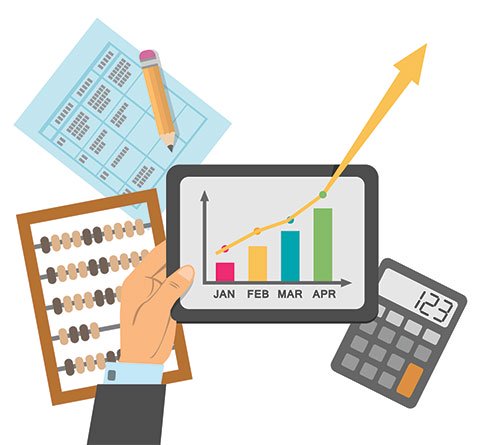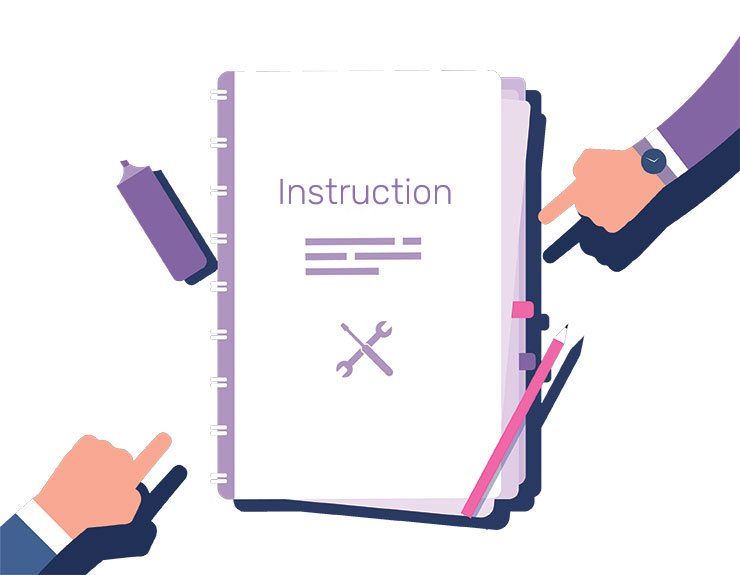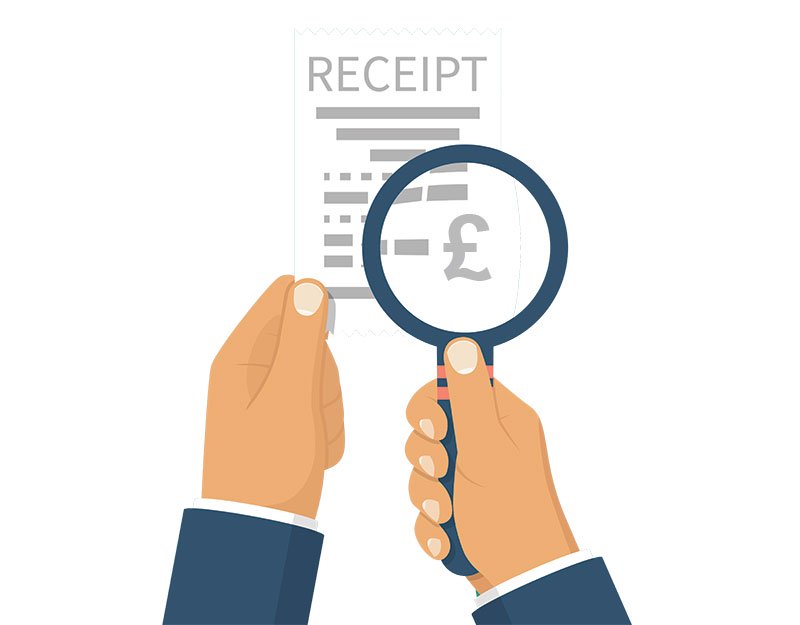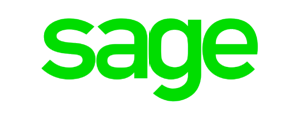As a business, managing your money is absolutely critical.
If you’re not on top of your cash flow, credit control and expenditure, and have a contingency budget set aside to cover unexpected costs then your company could run out of funds and fail.
Recent research has found that 90% of small businesses in the UK close down because of unsustainable budgeting issues. And that the average wait for invoices to be paid is a cashflow-disrupting 72 days.
There’s a worrying trend towards persistent late payments and smaller organisations tend to suffer the most as they’re often at the end of the supply chain. The issue has become so widespread that the UK government recently launched a late payments complaint procedure.
It’s estimated that the late payment culture in Britain is responsible for a £266bn hole in the working capital of small businesses. And with a recent study’s findings suggesting that the matter is getting worse rather than better, specifically aggravated by Brexit, cash flow obstacles are a problem that you can’t afford to ignore.
How to Improve Your Cash Flow
 Most SMEs don’t have big cash reserves, and even those that are doing well are threatened by late and unpredictable client payments.
Most SMEs don’t have big cash reserves, and even those that are doing well are threatened by late and unpredictable client payments.
There are various techniques you can employ to improve your cash flow. These can include:
- sending invoices when work is completed rather than at the end of the month
- negotiating better credit terms with your suppliers
- applying to the bank for a loan
- getting a small business credit card
- setting up an escalation process to chase late payments
- only accepting payment in advance
- offering discounts or incentives for early payers
- running credit checks on new customers before working with them
- building strong personal relationships with clients so they’re more inclined to pay you promptly
- working with a claims consultant or solicitor to recover funds
- maintaining a cash buffer for any unforeseen circumstances
- identifying business-critical expenses and cutting down on nice-to-haves
- trying not to hold any excess stock
- sending reminders to clients before invoices are due
Another option is to set up Direct Debit to collect recurring customer payments automatically, on a set day every month. This hassle-free choice will help to secure your cash flow by making it easier to forecast when money is coming in.
If every month you’re juggling supplier bills, staff salaries, office rent and other overheads and can’t align your inflows with your outflows then it’s time to consider moving customers onto Direct Debit payments.
What is a Direct Debit Mandate?
 A Direct Debit mandate is an instruction from your customer to their bank to authorise you to take payments. In general, a schedule for debit payments is agreed between you and your customer, for example on a set date every month.
A Direct Debit mandate is an instruction from your customer to their bank to authorise you to take payments. In general, a schedule for debit payments is agreed between you and your customer, for example on a set date every month.
The mandate is standardised and means that:
- all future payments are authorised, provided the mandate isn’t cancelled
- you must notify your client of each payment before collection
- it’s covered by the Direct Debit Guarantee
This guarantee protects customers against payments made in error or taken fraudulently. If an incorrect amount is deducted from their account, they’re entitled to a full and immediate refund. They can also cancel a mandate at any time by contacting their bank.
Direct Debit is run by Bacs, the company that’s been managing automated payment services for banks, organisations and individuals since 1968. It’s regulated by the UK government and also manages Bacs Direct Credit.
How Does Direct Debit Help to Secure Cash Flow?
You agree with your customer in advance the frequency, amount and date for taking their payments. Therefore, you know exactly when the cleared funds should hit your account and what the total should be.
In return, customers know when the money is being taken to ensure there’s enough funds in their account to cover the debit.
If for any reason a Direct Debit bounces you’re notified immediately and the collection can be attempted a second time.
With Direct Debit you can also offer your customers the option to clear any arrears they might have accrued by spreading the cost of their payments over an agreed timeframe and with a set amount.
Taking payments by cash, cheque or bank transfer are still viable options, however none offer the same streamlined, reliable automation as Direct Debit. In an increasingly time-poor world, offering the easiest method to customers makes complete business sense.
How Do I Organise a Direct Debit with a Customer?

Setting up a Direct Debit with a customer can be done by phone, via your website or by paper. Customers will need to provide their name and bank details.
As per the rules of the Direct Debit scheme, you’ll need to send out a mandatory advance notice letter before you collect the first payment that confirms the information they’ve provided and when you’ll be taking payments.
How Do I Set Up A Direct Debit Mandate with My Bank?
Due to the risk involved by providing Direct Debit services to SMEs most banks will only offer this to large organisations. A bank has to act as a sponsor and indemnify a business against any potential abuse of the Direct Debit Guarantee. Therefore, if you’re unable to pay fees or missed collections, then the bank has to pay for you.
You can request a Service User Number (SUN) from your bank to manage your own Bacs payments. This requires buying and installing expensive Bacs software, licensing, upgrades and support.
There will also be bank fees to cover as a Direct Debit submitter and you’ll need staff trained in Bacs processing.
Many SMEs in the IT sector use a Direct Debit facilities management service, such as that offered by FastPay, to manage their Direct Debit collections. This is commonly more affordable and feasible than managing a scheme in-house.
If you have your own SUN, then FastPay offers a Bureau Service. However, it’s often the case that sole traders, SMEs, charities, limited companies and partnerships can’t get a SUN. FastPay’s Managed Service is for these businesses, as it provides a personalised SUN.
But Isn’t Paying for a Direct Debit Service Yet Another Expense?
 Latest statistics reveal that Direct Debit payments increased by 5% in 2017, trusted by both large and small companies alike. And the same study found that the use of cheques dropped 12% in the past year.
Latest statistics reveal that Direct Debit payments increased by 5% in 2017, trusted by both large and small companies alike. And the same study found that the use of cheques dropped 12% in the past year.
Outsourcing the automated collection of payments will save you time, money, effort and reduce the stress of dealing with customers who haven’t paid. Many businesses consider it an absolutely essential expense that aids their growth rather than stunts it.
Both options offered by FastPay have affordable pricing and provide you with all the Direct Debit mandate templates, scripts and webpages you need to set up customers. It manages the process with the bank on your behalf, offers straightforward reporting as well as the option to integrate with any existing accounting software you have.
There’s no minimum contract, so if you find that the service isn’t helping to improve your cash flow then you can cancel.
How Can I Persuade My Customers to Move to Direct Debit?
You might think that customers will be reluctant to move to Direct Debit payments, but it’s actually easy to persuade them that it’s a prevalent, trusted method.
More than 4.2 billion Direct Debits were processed in 2017, according to the latest figures by Bacs. And almost 90% of British adults have at least one Direct Debit, with 62% of people preferring to pay regular bills using this method.
Your customers will benefit from the convenience of automatic debits, saving time and energy. It also gives them peace of mind, as they will never miss a payment or receive a late penalty. The Direct Debit Guarantee protects them with comprehensive safeguards, making it the most secure form of payment available with a low risk of fraud.
And, as well as improving your business cash flow, it will also help with their personal accounting as they’ll know exactly when money will be taken.
What Are Some of the Other Benefits of Direct Debit?
 As well as improving your cash flow, Direct Debit offers convenience and boosts productivity. You’ll no longer need to spend inordinate amounts of time chasing up late payments, or moving around money to cover your outgoings as you wait for funds to come in.
As well as improving your cash flow, Direct Debit offers convenience and boosts productivity. You’ll no longer need to spend inordinate amounts of time chasing up late payments, or moving around money to cover your outgoings as you wait for funds to come in.
Direct Debit also allows you to go paperless and boost your environmentally-friendly credentials by cutting the piles of paper overwhelming your desk.
Take Control of Your Cash Flow
Struggling to balance your accounts receivable with your accounts payable is an inevitable part of running an IT business. There are numerous procedures you can put in place to keep incomings and outgoings on track and running smoothly.
If overdue invoices and late fees mean your revenue isn’t meeting your expenses when you need it to, then taking payments via Direct Debit could be your perfect solution.












